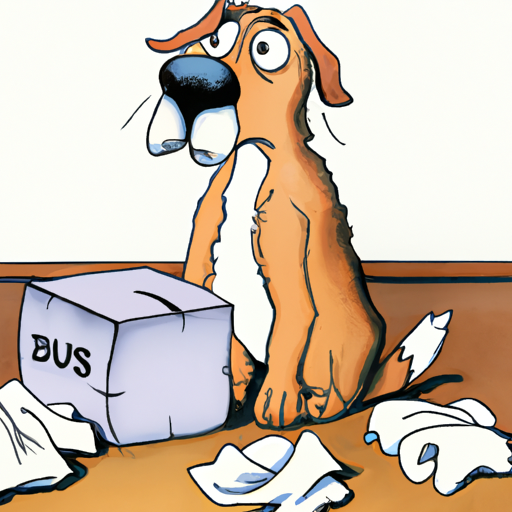Understanding Your Dog’s Unusual Behavior
Have you ever caught your canine companion with a mouthful of tissues? You are not alone. Many caregivers like you have noticed this peculiar behavior in their dogs. But why do dogs eat tissues? The answer lies in understanding your furry friend’s instincts and dietary needs.
The Instinctual Aspect
Dogs are natural scavengers. In the wild, they are hardwired to hunt and scavenge for food. This behavior has been passed down through generations. Eating tissues may seem strange to you, but for your dog, it’s a remnant of their wild instincts.
- Curiosity: Dogs explore the world using their mouth. Tissues, with their soft texture and ability to shred, offer a unique sensory experience.
- Food Scents: If the tissue has remnants of food or human scent, it becomes even more attractive.
Dietary Needs and Pica
Sometimes, the consumption of non-food items like tissues can be attributed to a condition called ‘Pica’. This could be an indication of dietary deficiencies or other health issues.
- Dietary Deficiencies: Your dog might be lacking certain nutrients in their diet. Eating tissues may be their way of trying to supplement.
- Digestive Problems: If your pet has digestive issues, they might eat tissues to induce vomiting and get relief.
- Boredom or Anxiety: Emotional distress can also trigger unusual eating habits in dogs.
| Potential Cause | Signs to Look Out For |
|---|---|
| Dietary Deficiency | Change in appetite, lethargy |
| Digestive Problems | Diarrhea, vomiting |
| Emotional Distress | Changes in behavior, destructive habits |
The Dangers of Eating Tissues
While a small piece of tissue might pass through your dog’s digestive tract without any issues, larger amounts can cause blockages. These can lead to severe health issues requiring immediate veterinary attention. Make sure to keep tissues and other small items out of your dog’s reach.
What to Do If Your Dog Eats Tissues
If you notice your dog eating tissues, it’s crucial to discourage this behavior. Here are a few steps you can take:
- Provide a balanced diet to ensure all nutritional needs are met.
- Engage your dog in plenty of physical activities to ward off boredom.
- Keep tissues and similar items out of your dog’s reach.
Frequently Asked Questions
Q: Is it normal for dogs to eat tissues?
A: While it’s not uncommon due to their scavenger nature, it’s not healthy behavior.
Q: Can eating tissues harm my dog?
A: Yes, eating tissues can lead to blockages in the digestive tract.
Q: What should I do if my dog has eaten a large amount of tissue?
A: If your dog has ingested a large amount, contact your vet immediately.
Q: How can I discourage my dog from eating tissues?
A: Keep tissues out of reach, provide a balanced diet, and encourage physical activities.
Remember, if you have any concerns about your dog’s behavior or health, always consult with a veterinarian. They can provide you with the best advice tailored specifically to your dog’s needs.



